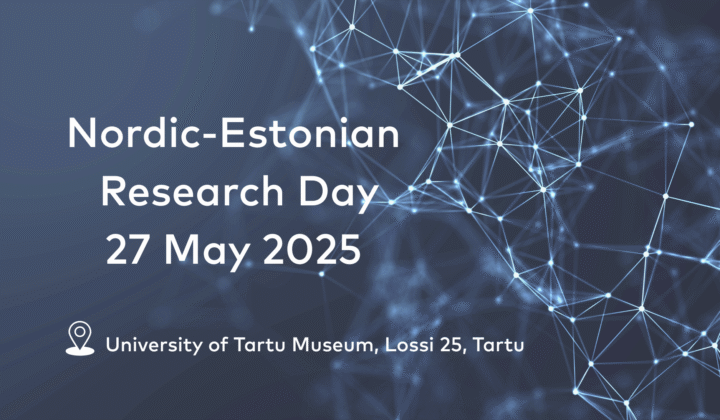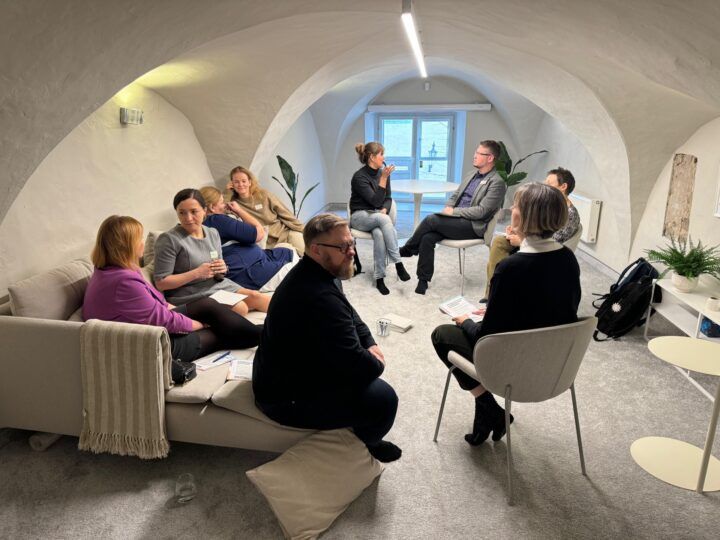Baltic States Set Benchmark for Ukrainian Refugee Integration, Expert Says

The Russian-led war in Ukraine has triggered the biggest refugee crisis since the Second World War, with repercussions far beyond Europe's borders, as migration experts describe the situation in the region almost two years after the large-scale invasion. Today, the Ukrainian refugee crisis is already being described as a "protracted crisis", and the overall migration trends observed are equally sobering: not only has migration to European countries reached record highs in the last decade, but the number of arrivals is set to continue to increase.
“In the 21st century, migrant inflows increasingly pose challenges that policymakers cannot ignore. Available data show that in 2020, more than 140 million people residing in the Organisation for Economic Co-operation and Development (OECD) member countries were born outside their current country,” said Ave Lauren, an OECD migration policy analyst in Vilnius.
During the concluding conference of the “For-In” project focused on immigrant and refugee integration, spearheaded by the Nordic Council of Ministers Office in Lithuania, attendees were briefed on the latest OECD report titled “Settling In”. This report sheds light on current research trends regarding immigrant integration, highlights challenges, and provides a data-driven basis for recommendations tailored for policymakers and organizations operating within this domain.
The biggest refugee crisis in Europe since World War II
According to the expert, the total immigrant population in the OECD has seen a twenty-five percent increase over just the last decade. Today, migrants make up more than a tenth of the population in two-thirds of OECD countries. Luxembourg has the highest proportion of migrants at more than fifty percent, while Switzerland and New Zealand have particularly large migrant populations.
“If we take a broader view and include those with at least one foreign-born parent, then we see even larger shares. We think of countries like the United States and Canada as having been shaped by migration, but it must be acknowledged that many European countries have their deep-rooted own migration stories, which are shaping their societies,” noted A. Lauren at the “For-In” conference, explaining that around one in five people in the European Union (EU) were either foreign-born themselves or had at least one parent born abroad. Historical circumstances in some Baltic countries have led to even higher proportions: in Latvia and Estonia, for example, a third of the population have foreign roots.
A. Lauren stressed that while migration flows are currently at record highs, it is already evident that they will increase even further: “Last year saw unprecedented levels of immigration in OECD countries, with six million new permanent residents arriving in the region in 2022. This number does not even account for temporary arrivals, including 4.9 million displaced Ukrainians currently living in OECD countries. The Russian war has triggered the fastest and largest refugee crisis since the Second World War, and its effects are being felt far beyond Europe, with Germany, Poland, the Czech Republic, the US, the UK, and Canada hosting the largest numbers of Ukrainian refugees.”
The impact also extends to the Baltic countries, where the Ukrainian refugee population is comparatively significant in relation to the overall population size, surpassing that of most other countries. We are facing a protracted displacement crisis, and it is already clear that these newcomers will shape the migration and integration landscape for the next decade across the OECD,” said the migration policy expert, who has been following the management of this humanitarian crisis since the early days of the war in Ukraine.
Evidence shows that over the past decade, the overall integration situation of migrants has been improving, with progress in their integration into the labour market and better educational outcomes for their children. “Although the indicators are positive, immigrants who arrive with higher education qualifications are still undervalued. Europeans tend to think that immigrants are less educated than they really are, or that their children’s educational performance is lower. These are just some examples of the disparities between our perceptions and the reality,” she said, adding that integration rates tend to improve the longer immigrants stay in a country. It is still worrying, she said, that a sense of discrimination among migrants has increased and that many integration initiatives fail to reach certain immigrant groups, including women and humanitarian migrants.
Lessons from the crisis and remedies for the future
Today, the outflows from Ukraine are much lower than in the first months of the war, so what lessons has Europe learnt from the Ukrainian refugee crisis? According to A. Lauren, success stories in migration and refugee resettlement are rare, but the early response to this crisis has been unusually good: countries have acted swiftly and decisively and provided unprecedented support to people seeking protection, and importantly, countries across Europe have been able to work together effectively.
“When we look at outcomes, we see that Ukrainian refugees have integrated quite quickly into the labour markets of the countries that hosted them. This may have been due to several factors, but the most important are immediate employment access, the higher education level of the arrivals and the availability of jobs. At the same time many highly skilled professionals have had to take low-skilled jobs to survive, leading to skills mismatches and potentially driving skills deterioration. There is no easy way out here as they are experiencing a sort of ‘waiting dilemma’ – Ukrainian refugees expect to return home soon and are unwilling to invest in integration”, said the migration policy expert on the challenges facing Ukrainians.
She pointed out that this is where integration support from host countries is important, but there has been a hesitancy to provide it as many fear that this might prevent returns and, in turn, harm the recovery of Ukraine. Yet Ukraine can benefit also from better socio-economic outcomes of displaced Ukrainians: the skills and professional experience refugees have gained abroad can be very useful in the reconstruction process in Ukraine, and until then they can financially support their relatives who have remained behind in the homeland: “The war was expected to end soon, but the crisis continues and we have to find a way to balance between supporting these people who fled and how much effort we put into creating opportunities for them to return home. Many of these people want to return, but they need to be able to survive and take care of their families until this is an option,” stresses the OECD Migration Policy Analyst.
One way to strike this balance is by adopting what the OECD calls a dual intent approach to integration of Ukrainian refugees, which lays the groundwork for two possible paths – indefinite stay or return. This can be done through specific measures.
“This means investing in human capital, preserving and improving existing skills that could be used regardless their future location. We should provide Ukrainians with training in sectors that will be crucial for the reconstruction and recovery of Ukraine, such as engineering, energy, health, IT, among others. This will create opportunities for them while they are still displaced and will also facilitate employment upon their eventual return. Attention should be paid also to simplifying the recognition of skills and qualifications for adults in both host countries and Ukraine, as well as offering Ukrainian language teaching to children and young people to ease returns,” she said, adding that the Baltic countries are already showcasing some of the most promising support measures for Ukrainians in the OECD region.
According to her, Lithuania, Latvia, and Estonia have been leading the way in responding to the Ukrainian displacement crisis. For example, Lithuania has employed displaced Ukrainian teachers as teaching assistants, helping maintain skills while also supporting refugee children. Additionally, the Baltic countries have collaborated with Ukraine to facilitate the transition back to schools for children. “Countries face evolving integration challenges with changing immigration flows, yet investment in inclusion policies always pays off. Successful integration benefits both immigrants and the societies they join. The Baltic countries’ response to the Ukrainian refugee crisis demonstrates their ability to handle sudden flows, providing valuable lessons for many other OECD countries eager to learn from them,” says A. Lauren.
About the FOR-IN project
The Nordic Council of Ministers offices in Lithuania, Latvia and Estonia, and UNHCR Representation for the Nordic and Baltic countries have launched the comprehensive FOR-IN integration project together with authorities, and NGOs from across the Nordic-Baltic region. This project received the funding from Nordic Council of Ministers, UNHCR and national authorities.
The project has been running for two years (2022-2023) and connected various actors, ranging from ministries and municipalities to NGOs and actors with refugee and migrant background.
The aim is for the Nordic and Baltic countries to learn from each other’s experiences and ultimately, engage local actors and refugees themselves better in the integration processes. The project partners has leant from each other by participating in conferences, events, and study visits across the region.


